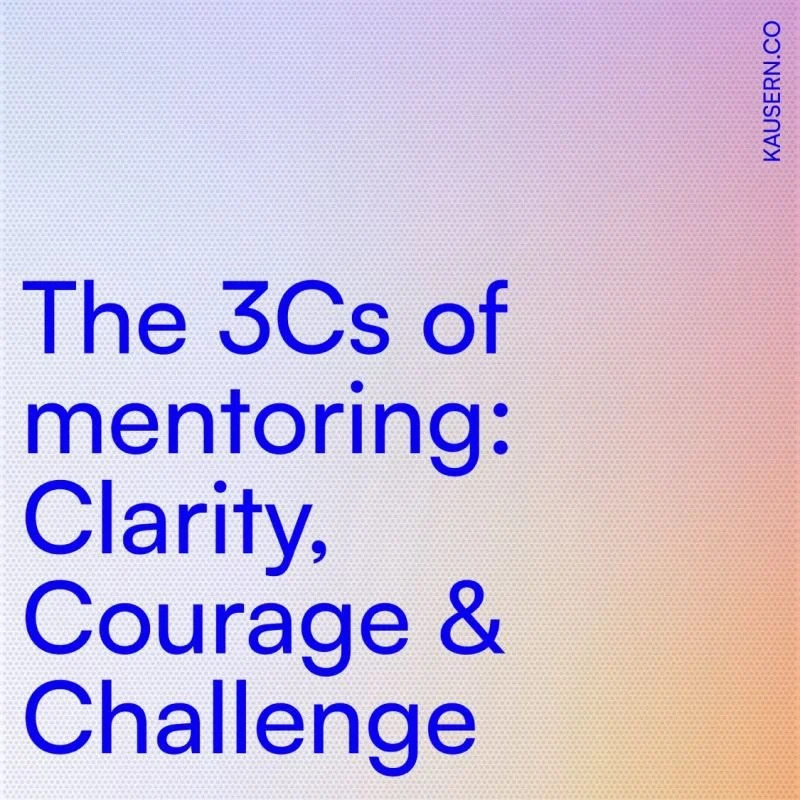The 3Cs of mentoring: Clarity, Courage & Challenge
💡 “The key to being a good mentor is to help people become more of who they already are - not to make them more like you.” – Suze Orman
I’ve been asked a few times to define the role of a mentor and what exactly goes on between a mentor and their mentee. The purpose of a mentor is to help their mentees grow to become the best version of themselves.
🙋🏻♀️ What happens in a mentoring session? The mentor provides their mentees with perspective and frameworks to help them achieve their personal or career goals, challenge their limiting beliefs, sometimes connect them to the mentor’s own network and when appropriate, share valuable life lessons.
A mentoring relationship usually goes much longer than a coaching relationship. (Read the difference between mentoring and coaching here: https://lnkd.in/gu8Aw6DE). Regardless, these two approaches share the same essence of effectiveness; The 3Cs: Clarity, Courage, and Challenge.
🔍 CLARITY (Head)
As mentors, our role is to provide clarity by offering a broader perspective for our mentees to consider. This can be achieved through asking them powerful questions and intentional listening, encouraging them to think and dig deeper into their reserves. When appropriate, ask permission to share our own perspective. By sharing our insights and experiences, we can illuminate the path ahead, helping them navigate their roadblocks with a clearer vision.
💪 COURAGE (Heart)
Encouragement is the heart of mentoring. It's about giving courage to our mentees and urging them to recognize and lean on their wisdom, strengths, and creativity. By creating a safe and non-judgemental space, a mentor enables psychological safety, lessening their mentees’ anxiety and helping them be more open in dealing with their inner insecurities.
🚀 CHALLENGE (Hands)
And finally, as mentors, we must challenge our mentees to step out of their comfort zones and take action. Growth thrives in the realm of challenge. It's in overcoming challenges that true potential is unearthed.
In summary, the 3Cs model is effective because of its nature of a transformative experience. It relates the cognitive domain (head) for critical reflection, the emotional domain (heart) for understanding values and behaviours, and the action movement domain (hands) for engagement.

